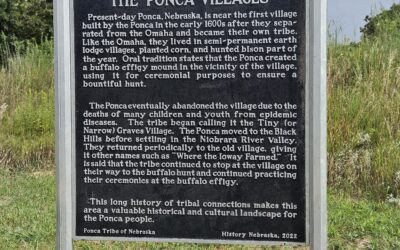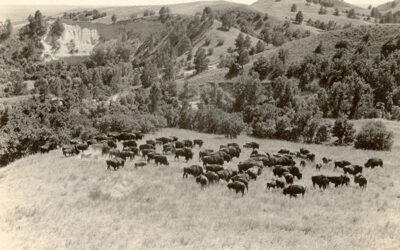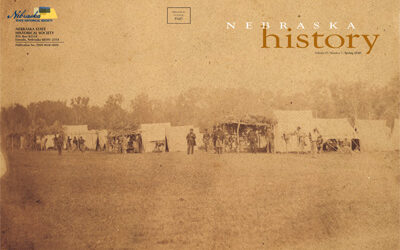Algernon S. Paddock, who served two terms as United States senator from Nebraska (1875-81 and 1887-93), came to Nebraska as a young man and occupied positions of prominence in the territory and state throughout his life. He arrived in Omaha in May 1857, coming up the Missouri River by steamboat. A native of New York state, he had attended Union College, taught school, and studied law. In Nebraska Territory he preempted a farm near Fort Calhoun, but spent most of his time in Omaha, serving briefly as an editorial writer for the Omaha Republican. He campaigned for a seat in the territorial legislature in 1858. Defeat did not keep him from being active in the founding of the Nebraska Republican Party the next year.
Paddock soon won a position of leadership in the new Republican Party. He was a delegate to the convention that nominated Abraham Lincoln for the presidency in 1860, and the next year (largely through the influence of a friend, Secretary of State William H. Seward) was appointed secretary of Nebraska Territory. He served in both that capacity and as acting governor until Nebraska achieved statehood six years later.
Paddock ran for the U.S. Senate after Nebraska entered the union, but was defeated by Gen. John M. Thayer. In 1875 he won that office, succeeding Thomas W. Tipton. He was defeated in 1881 by Charles H. Van Wyck. Six years later he gained a second term in the Senate, but lost his try for a third term in 1893 to William V. Allen. During the interval between his two terms in the Senate, Paddock served as a member of the Utah Commission, which was formed to allay the practice of polygamy through governmental process.
As secretary of Nebraska Territory, Paddock benefited the state in a number of ways, including the raising of troops for the Union cause during the Civil War and the defense of the frontier. As a U.S. senator, he secured the first river and harbor appropriation for Nebraska, helped retain the headquarters of the Department of the Platte at Omaha, and established a road to the Black Hills.
As chairman of a federal committee on agriculture, Senator Paddock was in a particularly good position to serve his constituents. He worked to build up the agricultural bureau and helped to bring about its change to departmental status. He was instrumental in securing cattle quarantine and meat inspection laws and in supporting pure food legislation.
Senator Paddock was throughout his life one of Nebraska’s most ardent and effective promoters. He died October 17, 1897, at his home in Beatrice.



